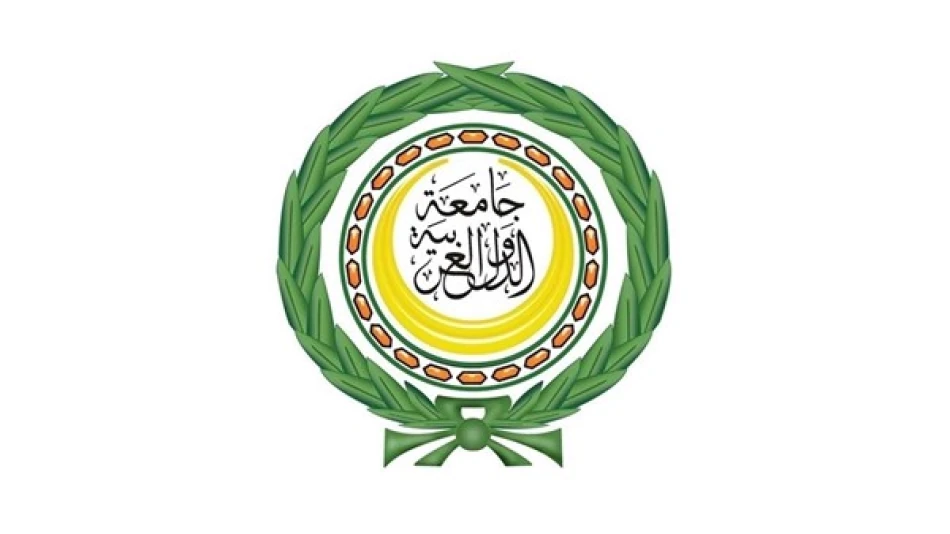
Arab League Condemns Attempts to Alter Status Quo at Ibrahimi Mosque
Arab League Condemns Israeli Plans to Strip Hebron's Authority Over Ibrahimi Mosque
The Arab League has issued a forceful rejection of Israeli government plans to remove Hebron municipality's administrative powers over the Ibrahimi Mosque and surrounding Old City areas. The move represents what Arab officials describe as an unprecedented escalation in Israel's efforts to alter the religious and cultural character of one of Islam's holiest sites, potentially destabilizing the entire region.
A UNESCO World Heritage Site Under Threat
The Ibrahimi Mosque, known to Jews as the Cave of the Patriarchs, holds profound significance for both Muslims and Jews as the believed burial site of Abraham. In 2017, UNESCO designated the mosque and Hebron's Old City as endangered World Heritage sites, a decision that reflected growing international concern over the site's preservation.
The Arab League's statement emphasizes that current Israeli actions directly violate UNESCO's designation and undermine the organization's authority to protect global cultural heritage. This challenge to UNESCO's mandate could set a dangerous precedent for other disputed heritage sites worldwide.
Breaking the 1997 Hebron Agreement
The proposed Israeli administrative changes would effectively nullify key provisions of the 1997 Hebron Protocol, signed between the Palestine Liberation Organization and Israel. That agreement explicitly maintained Hebron municipality's control over the Ibrahimi Mosque, representing one of the few successful diplomatic arrangements from the Oslo peace process era.
By unilaterally altering these arrangements, Israel risks undermining the broader framework of negotiated agreements that have provided some stability in the West Bank for over two decades. The move signals a shift toward more assertive Israeli control over contested religious sites.
Regional Implications and International Response
The Arab League's emergency session, chaired by Jordan and requested by Palestine, reflects the gravity with which Arab nations view this development. The organization has called for urgent international intervention, including deployment of monitoring missions and enhanced diplomatic pressure.
The statement specifically appeals to UN Secretary-General António Guterres to take "effective measures" to protect civilians in Hebron, while requesting UN special rapporteurs on religious freedom and Palestinian human rights to document violations.
Broader Pattern of Administrative Control
This controversy fits within a larger pattern of Israeli administrative expansion in the West Bank. Similar disputes have emerged over Jerusalem's holy sites, where Israel has gradually increased security presence and visitor restrictions at Al-Aqsa Mosque compound.
The Hebron situation is particularly sensitive because the city remains divided under the 1997 agreement, with Israeli forces controlling the central area around the mosque while Palestinian authorities govern the surrounding neighborhoods. Any change to this delicate balance could trigger broader unrest.
Stakes for Palestinian Identity and Sovereignty
The Arab League frames Israel's plans as part of a systematic effort to "erase the authentic Palestinian identity" and eliminate Palestinian claims to the historic site. This language reflects broader Palestinian concerns about cultural erasure alongside territorial disputes.
For Palestinians, maintaining administrative control over the Ibrahimi Mosque represents one of the few remaining expressions of sovereignty in areas under Israeli military occupation. The mosque's status as an Islamic endowment (waqf) managed by the Palestinian Ministry of Religious Affairs reinforces these claims.
International Law and Heritage Protection
The dispute highlights tensions between Israel's security concerns and international heritage protection standards. While Israel cites security needs for increased control, the Arab League argues that no legal basis exists for Israeli sovereignty over Palestinian territory or heritage sites.
This disagreement reflects broader questions about how international law applies in occupied territories, particularly regarding cultural and religious rights. The outcome could influence similar disputes over heritage sites in contested regions worldwide.
The Arab League has instructed its diplomatic missions globally to raise this issue with host governments, suggesting an international campaign to pressure Israel to reverse course. Whether this diplomatic offensive succeeds may depend on broader geopolitical dynamics and the international community's willingness to enforce UNESCO decisions and heritage protection principles.
Most Viewed News

 Layla Al Mansoori
Layla Al Mansoori






